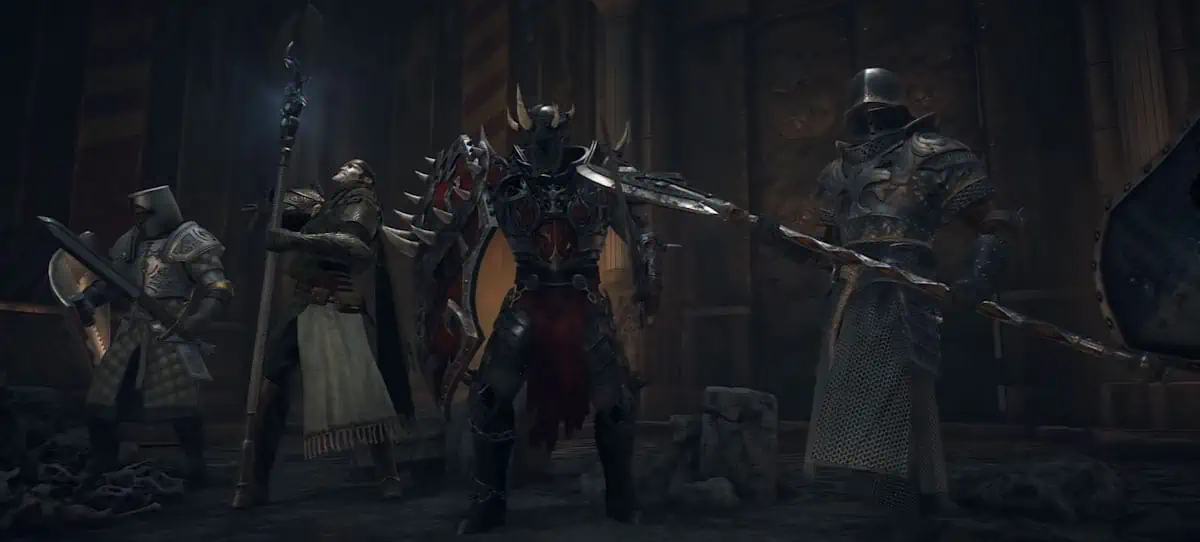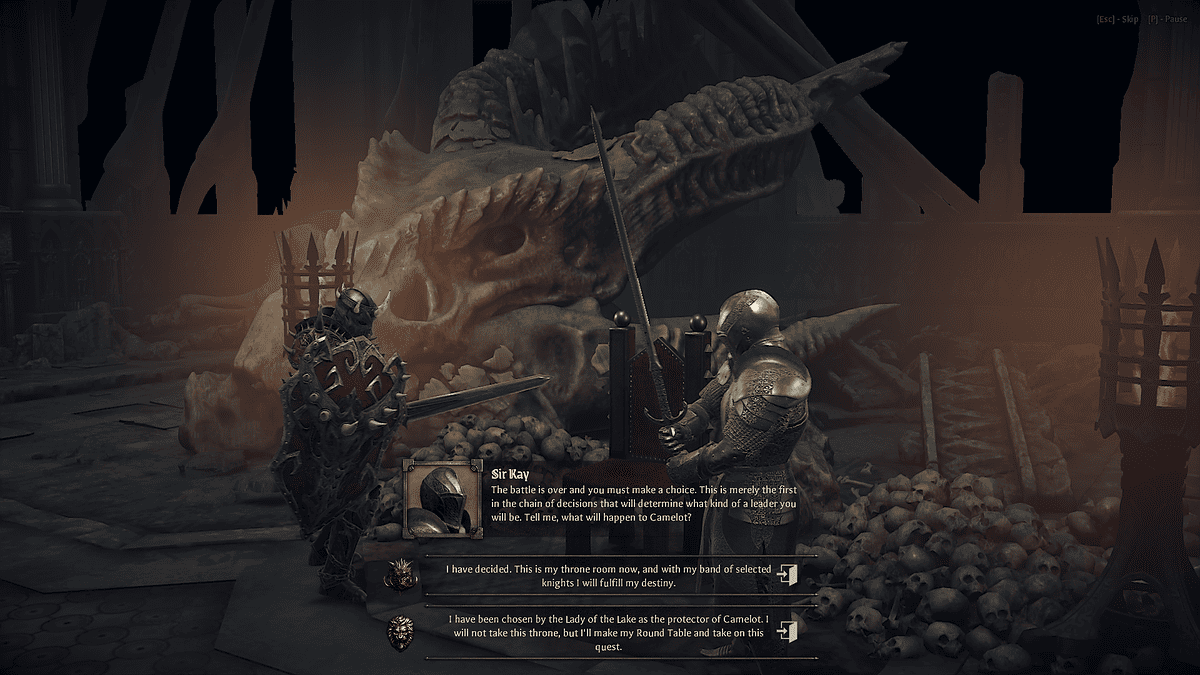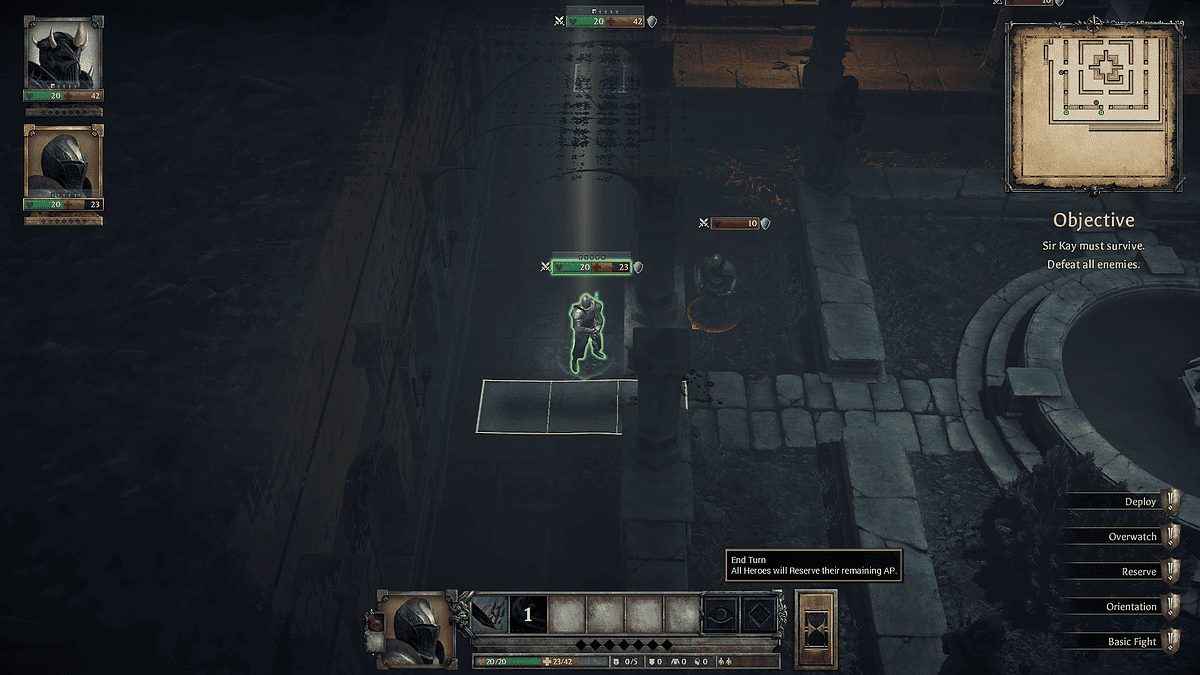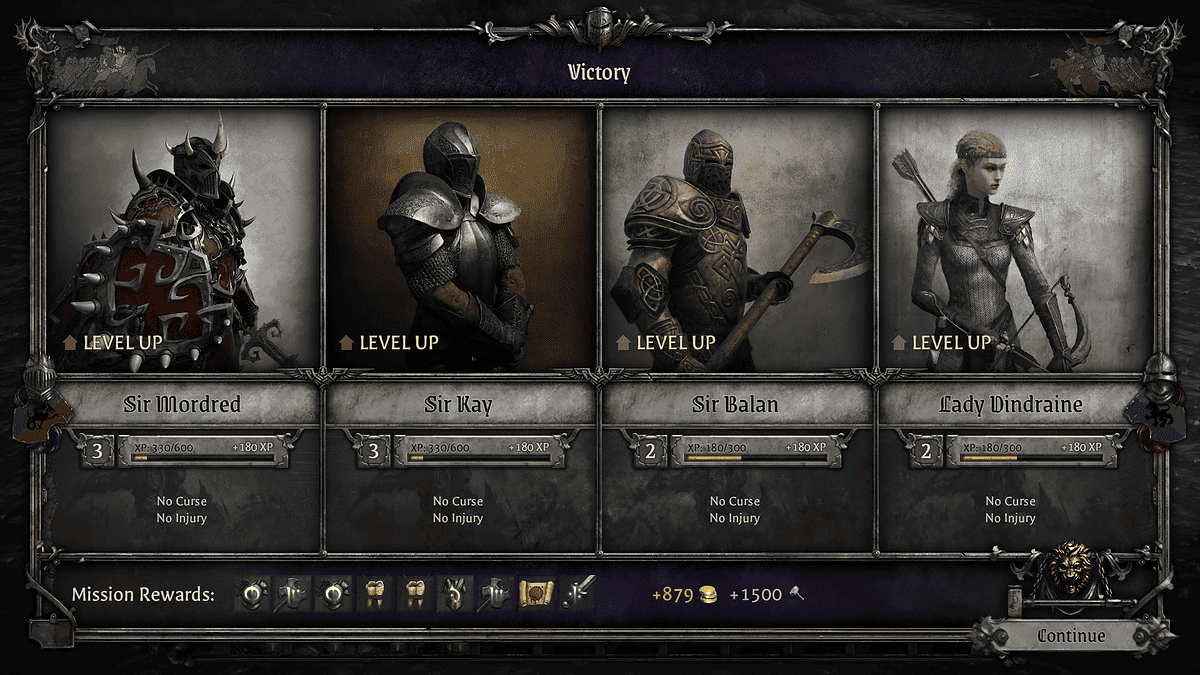King Arthur: A Knight's Tale early access review: The makings of a new turn-based tactics legend
6 min. read
Updated on
Read our disclosure page to find out how can you help MSPoweruser sustain the editorial team Read more

History may be written by the victor, but nobody said that the same was true for myths and legends. Developer NeocoreGames knows this, having given the classic Arthurian legend its own dark fantasy spin and infused it with all the makings of a gritty turn-based tactics game. The aptly named King Arthur: A Knight’s Tale is the latest in a longstanding PC series that released in early access on Steam just a few days ago. And while the amount of content presently available to play in no way justifies the current purchase price, A Knight’s Tale has the potential to evolve into one of the best genre entries.

The first thing to mention is that this is a great jumping on point for newcomers to the franchise. The King Arthur brand has, in fact, been around in some capacity for well over a decade, yet the decision to not include a number in the title is an intentional (and smart) one, speaking to the game’s desire to welcome in fresh players. What they’ll find is a surprisingly deep and nuanced tactics game, one that might be grounded in the familiar yet offers up just enough new to make it worth playing. This is more than just a medieval-set XCOM.
The basic story setup is evidence enough of this. As while it would have been easy to cast you as the titular monarch off on one of his adventures, A Knight’s Tale instead has you play as the classic story’s fabled antagonist, Sir Mordred, recently deceased and suddenly revived by the lady of the lake to take down his arch nemesis. This seamless blend between dark fantasy and historical grounded-ness is one of the game’s biggest appeals, bleeding into the turn-based battles to give your actions weight while still leaving you room to get inventive.
The game begins with Mordred awakened in a dank and darkened chamber, coming to terms with his newfound supernatural state and in search of an escape. From here you get to learn the basics of Action Points, Overwatch positions and other genre staples, before slowly building up your party to a team of four. Your party of heroes eventually consists of various classes, including an archer, two champions and Mordred himself serving as a hulking defender. There are three more classes expected to arrive in a later update, but for now that’s your lot for the two story missions included in this early access version.

Battles will feel instantly familiar to anyone who’s played an XCOM, last year’s phenomenal Gears Tactics or even select Fire Emblem titles. However, what separates A Knight’s Tale from the raft of other popular strategy games its in emphasis on melee combat. This is an adventure set entirely in the middle ages, after all, so not being able to take down enemies from a great distance really forces you to think strategically and plan out attacks far in advance. A big example of this came for me during the first mission’s final encounter.
Set in a castle courtyard, at this point I only had two members in my party, Sir Mordred and Sir Kay, the latter of which had to stay alive for me to meet the mission complete parameters. The issue was, however, that there were at least three crossbow enemies able to attack from afar in addition to two champion-level characters. Obviously, Mordred and Sir Kay could only do damage from up close, so I decided to play it smart and force the melee enemies into a funnel to engage and then catch them in my Overwatch view. From here I could fully focus on the ranged enemies, using Mordred for distraction and having Kay attack them from behind for added damage. A Knight’s Tale is best challenging you in awkward scenarios like this.
My time spent with characters may have been quite limited due to the scarcity of story content included right now, but already it’s clear that making you empathise with your party members is something King Arthur: A Knight’s Tale cares about dearly. Your introductions with them are always brief, yet features a brief moment where you can click through dialogue options to learn more about their plight. Each’s goal hardly ever lines up with Mordred’s malicious desires, so I’m hoping that this is laying the foundation for some interesting relationship dynamics in the full game. The baked-in morality system would seemingly indicate that.
It’s worth noting, too, that King Arthur: A Knight’s Tale is no slouch in terms of punishment. Before starting a campaign you’re given the choice to play in classic mode or Roguelike mode, the latter of which saves far less often and has any character death’s stay permanent. Playing in Roguelike mode seemed a little redundant to me, not least because the game’s early access nature won’t see the proper effects of this set in. Still, even in classic mode, saving is limited to between missions and health items are incredibly scarce. Turn-based fans seeking a challenge are sure to find it here.

The main campaign barely gets going before you’re informed that you’ve reached the end of it, but luckily there are a handful of side missions included to let you test the metal of party members. A nice touch is that you’re gifted with two extra characters to toy around with, even if they are already existing classes you’ve gathered up and gotten a feel for in the story. Side missions provide an ample combat challenge and hint at other environments you’ll later visit as part of the wider campaign, sure, yet it still can’t distract from just how bare bones King Arthur: A Knight’s Tale is in its current state.
What’s here is definitely fun and engaging, don’t get me wrong, and if you’re someone who’s used to investing in early access games and watching them grow over time you might want to see what A Knight’s Tale has in store. However, the game is on sale for just under £30 on Steam, which at present only nets you a playtime of 4 to 5 hours max – and even then that’s stretching it. The nuanced story, gritty setting, and turn-based tactics tweaks show the makings of something great, yet my advice would be to wait it out and try it in a few months’ time. Balder’s Gate 3 and Rogue Legacy 2 all released in early access as slightly better value propositions.









User forum
0 messages